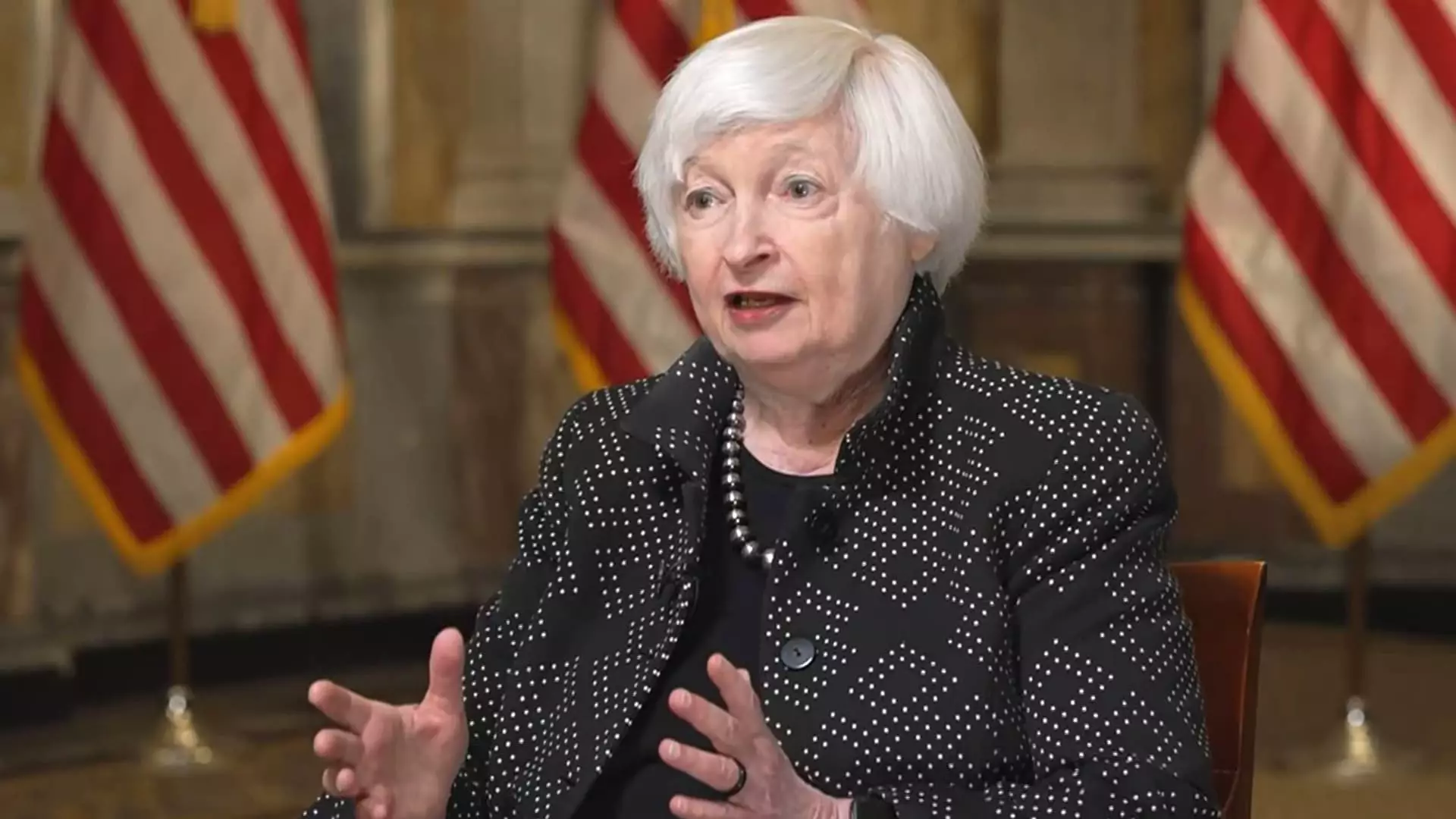In a candid exit interview, Treasury Secretary Janet Yellen articulated the complexities surrounding inflation in the United States, attributing significant importance to the aftermath of the COVID-19 pandemic. While acknowledging that the stimulus spending enacted under President Joe Biden might have increased inflationary pressures “a little bit,” Yellen emphasized that the primary catalysts for rising prices were rooted more deeply in pandemic-induced supply chain disruptions. This perspective highlights the intertwined relationship between fiscal policy and supply-side challenges faced by the economy during unprecedented times.
Yellen’s remarks reflect a broader economic narrative that the issues plaguing the Biden administration—often criticized for rising inflation—cannot be solely pinned on governmental spending measures. Instead, she identified severe disruptions within global supply networks as a key factor leading to shortages and, consequently, price hikes for essential goods. This makes it clear that any analysis of inflation must consider a multifaceted array of economic forces, rather than rely on a single cause attributed to government intervention.
When probed about potential regrets over the approval of the $1.9 trillion COVID relief package, Yellen maintained a supportive stance on the necessity of such drastic measures. She illustrated the dire circumstances that the United States confronted when Biden took office, with rampant unemployment and high mortality rates from the virus creating a pressing need for action. Yellen underscored the humanitarian aspect of the relief measures, advocating for the importance of easing the financial strain experienced by millions during the pandemic.
Furthermore, Yellen’s defense also extended to the Biden administration’s focus on fiscal responsibility, which aimed to balance stimulus measures with a commitment to reducing the nation’s deficit. This aspect of her interview brings to light the delicate balancing act policymakers face: addressing immediate economic suffering while countering long-term fiscal health.
Yellen expressed skepticism regarding proposed cuts to federal spending in response to an inquiry about a government efficiency initiative co-chaired by Elon Musk. She pointed out that increasing defense spending and maintaining popular mandatory programs like Social Security and Medicare make significant cuts to the overall budget a challenging prospect. This realism in confronting the deficit indicates a complex interplay between public needs and fiscal constraints.
While she acknowledged the ballooning deficit, with $1.8 trillion reported in the last fiscal year, Yellen indicated that rising interest rates were beginning to exacerbate financial obligations, complicating efforts to stabilize the budget. Her nuanced comments suggest that tackling the deficit requires more than mere spending cuts; it demands strategic planning and consideration of public sentiment.
As Yellen prepares to pass the baton to Scott Bessent, her remarks emphasize the importance of experience in financial leadership. She expressed optimism about Bessent’s background in hedge fund management, suggesting that his expertise could serve as a valuable asset in navigating future economic challenges. The transition in Treasury leadership signals a potential shift in approaches toward fiscal management and economic policy during continued recovery efforts from the pandemic’s impact.
Janet Yellen’s reflections as she steps down highlight a critical evaluation of past actions, current economic conditions, and the road ahead for U.S. fiscal policy. Her insights remind us that the economy operates within a complex web of causes and effects, requiring both immediate and long-term strategic thinking to foster recovery and growth.


Leave a Reply